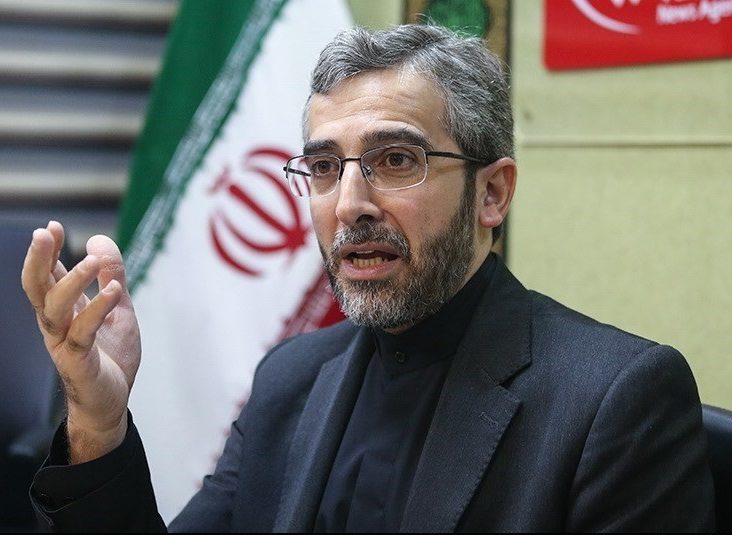The Vienna talks paused in July ahead of Iran’s presidential elections.
Iran named Ali Bagheri as its new nuclear negotiator, replacing Deputy Foreign Minister for Political Affairs Abbas Araghchi, Tehran Times reported on Tuesday.
Although Araghchi had attended all six rounds of nuclear talks in Vienna and served as the country’s chief nuclear negotiator since 2013, the move now sees him replaced by Bagheri, a relative of Supreme Leader Ali Khamenei.
Araghchi has now been named as an adviser to newly-appointed Foreign Minister Hossein Amirabdollahian.
Bagheri was among the team of negotiators for Iran’s former President Mahmoud Ahmadinejad when sanctions were imposed on the Islamic Republic.
The newly-appointed negotiator had publicly criticised the 2015 Joint Comprehensive Plan of Action [JCPOA] when it came into effect under the US Barack Obama administration.
Talks in Vienna kicked off in April this year and was attended by members of the P4+1 -China, Russia, the UK, Germany and France – in hopes of reviving the JCPOA following former US President Donald Trump’s withdrawal from the accord in 2018.
The talks were paused as they reached the sixth round in July to allow negotiators to await the results of the Iranian presidential elections. Ebrahim Raisi was named president in August, replacing Hassan Rouhani who was seen as a more moderate figure.
Raisi himself was also seen as a critic of the JCPOA, however the new president had changed his tune since launching his election campaign. In recent statements, Raisi said he welcomes the resumption of the talks on the condition that they lead to the removal of sanctions on Islamic Republic.
Iran, IAEA reach agreement after ‘constructive’ meeting to revive nuclear talks
“We have no objection to useful negotiations, but the programme and result of the negotiations should be the lifting of sanctions against Iran. Negotiation for [the sake of] negotiation is useless,” Raisi told French President Emmanuel Macron last week.
It remains unclear whether the upcoming nuclear negotiations will be led by Iran’s foreign ministry or the Supreme National Security Council [SNSC]. If the file remains under the former, Bagheri will become the new chief nuclear negotiator.
Bagheri previously served as the head of the judiciary’s human rights council and played several roles related to regional affairs in Iran’s foreign ministry.
The latest developments come as Iran witnesses progress regarding the nuclear talks.
Authorities in Tehran struck a deal with the UN’s nuclear watchdog the International Atomic Energy Agency [IAEA] on Sunday over the resumption of the stalled negotiations.
The agreement was made during IAEA’s Chief Rafael Grossi’s last-minute trip to Tehran late on Saturday where he met the new head of Iran’s Atomic Energy Organisation Mohammad Eslami, who was recently appointed by Raisi.
Both Grossi and Eslami said the nuclear discussions will continue on the sidelines of the general conference in Vienna later in September.
As part of the agreement, Grossi is set to return to Tehran soon to replace memory cards installed into the IAEAs monitoring cameras. Iran has held its stance that it will keep the memory cards in the country until an agreement to lift US sanctions is reached at the talks.
The agreement was made at a critical point as reports expressed concerns over Iran’s resumption of high enrichment of uranium.
In response to sanctions by Washington, attacks on its nuclear facilities, and the assassination of a top nuclear scientist, Tehran has ramped up its nuclear programme and is now enriching uranium to 60%, its highest level so far.
However, Russia’s negotiator at the talks Mikhail Ulyanov said there have been no indications of Iran’s nuclear activities being tied to the development of nuclear weapons, as quoted by Tehran Times on Wednesday.
Ulyanov also said “many governors call upon Iran and US to return to full compliance with JCPOA and underline the need for resumption of Vienna talks ASAP”.
Follow Doha News on Twitter, Instagram, Facebook and Youtube







